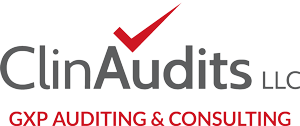Introduction
As digital health tools — such as wearables, mobile apps, and AI-driven platforms —become integral to clinical trials, regulatory agencies are evolving their frameworks to ensure these innovations align with Good Clinical Practice (GCP). This post explores how the FDA, EMA, and ICH are adapting GCP guidelines to accommodate digital technologies, while maintaining the core principles of participant safety, data integrity, and ethical conduct.
1. FDA’s Approach: Embracing Innovation with Oversight
The U.S. Food and Drug Administration (FDA) has taken a proactive stance in modernizing GCP compliance strategies:
- Remote Regulatory Assessments (RRAs): Introduced as part of the FDA’s evolving oversight model, RRAs allow for remote evaluation of clinical trial sites and digital systems.
- These assessments are not inspections but serve to verify compliance and data integrity in decentralized and tech-enabled trials.
- Updated Guidance on Electronic Systems (2024): The FDA reaffirmed a risk-based approach to computerized systems, emphasizing documentation, validation, and traceability throughout the data lifecycle.
- Collaborative Inspections: The FDA collaborates with international regulators (e.g., EMA, MHRA, Health Canada) to harmonize GCP inspections and share insights on digital health oversight.
2. EMA’s Framework: Structured Oversight of Computerized Systems
The European Medicines Agency (EMA) has issued detailed guidance on the use of digital technologies in clinical trials:
- Computerized Systems Guideline (2023): This framework outlines expectations for system validation, audit trails, electronic signatures, and data retention. It emphasizes ALCOA++ principles (Attributable, Legible, Contemporaneous, Original, Accurate, plus Complete, Consistent, Enduring, and Available).
- Qualification of Digital Methodologies: EMA’s Q&A guidance clarifies how digital tools must meet both medical device regulations and ICH GCP standards.
3. ICH E6(R3): The Next Generation of GCP
The International Council for Harmonisetion (ICH) is finalizing E6(R3), a major revision of the GCP guidelines:
- Focus on Flexibility and Technology: E6(R3) introduces a more flexible, principles-based approach that supports innovation while maintaining trial quality and participant protection.
- Risk-Based Quality Management: Sponsors are encouraged to implement quality-by-design and risk-based monitoring strategies, especially relevant for digital and decentralized trials.
4. Key Compliance Considerations for Digital Tools
To align with evolving regulations, sponsors and investigators must:
- Validate all digital systems used in data capture, monitoring, and analysis.
- Maintain oversight of third-party vendors and cloud-based platforms.
- Ensure traceability of data from source to submission.
- Protect participant privacy under GDPR, HIPAA, and local laws.
- Document system life cycles, including decommissioning and data access post-trial.
Conclusion
The regulatory landscape for digital health tools is rapidly maturing. While agencies like the FDA and EMA are embracing innovation, they are equally committed to upholding the foundational principles of GCP. For sponsors, CROs, and tech developers, staying ahead means not just adopting new tools — but embedding compliance, validation, and ethical oversight into every layer of digital trial design.
Interested in learning more about GCP auditing? Stay ahead of regulatory expectations with expert training and audit support. Contact us today! ClinAudits, LLC- Cheri Wilczek, President-email: cheri.wilczek@clinaudits.com; phone: 973-492-8108 extension 111. Our website is: www.clinaudits.com.
WHO WE ARE
ClinAudits is a highly specialized third-party provider of auditing and
Consulting services in the areas of:
Good Clinical Practice (GCP)
Good Laboratory Practices (GLP)
Good Manufacturing Practices (GMP)
Good Pharmacovigilance/Drug Safety (GPV)
Good Tissue Practice (GTP)
Risk Evaluation and Mitigation Strategy (REMS)
Since 1999, ClinAudits has completed over 6,000 projects, and we have Grown to over 106 active consultants worldwide!
